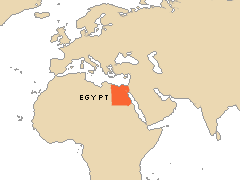
How do we know
The impact of the diarrheal control project was assessed through the examination of national civil registration data, nationwide cluster sample surveys of households, knowledge, attitude and practice studies, national Demographic and Health Surveys, and local area studies.Downloads
- Read the entire case study
(PDF | 120 K)
External Links
- Read more about oral rehydration therapy
- Find out more about USAID's assistance to the control of diarrheal disease in developing countries
- Read the WHO Bulletin on reducing deaths from diarrhea through ORT
- Watch a video regarding ORT’s significance in Bangladesh
- Take a further look into this "Simple Solution" for preventing deaths from diarrhea
Health Condition: Diarrheal disease is estimated to cause 2 million deaths in the developing world each year; the vast majority of these are among children younger than 2 years. Currently, 1 out of every 200 children who contract diarrhea will die of its consequences, including particularly dehydration. Almost all of these deaths could be prevented with the timely use of a simple and low-cost treatment for dehydration. In 1977, diarrheal diseases among children, which results in life-threatening dehydration, was identified as the cause of at least half of all infant deaths in Egypt.
Intervention or Program: The National Control of Diarrheal Disease Project of Egypt was established to promote the use of locally manufactured oral rehydration salts, which reverse the course of dehydration. The program sought to distribute the salts, along with information about the appropriate treatment of children with diarrhea, through public and private channels; the program reached mothers through mass media, including television. Training of all types of health workers also was integral to the program, as many physicians and nurses had to reorient their understanding of the optimal treatment of diarrhea.
Impact: The program succeeded in increasing the production of oral rehydration salts, increasing mothers' correct use of these salts, and changing feeding behavior. During the peak of the program in the mid-1980s, the program had achieved a fourfold increase in the distribution of oral rehydration salts, compared with the 1979 baseline. Virtually all mothers in the country were aware of oral rehydration salts, and most women could correctly mix the solution. Between 1982 and 1987:
- infant mortality declined by 36 percent
- child mortality fell by 43 percent
- mortality attributed to diarrhea during this same period fell 82 percent among infants and 62 percent among children
- 300,000 fewer children died because of the reduction in diarrheal deaths between 1982 and 1989
Cost and Cost-Effectiveness: The average cost per child treated with oral rehydration therapy was estimated at $6. The cost per death averted was between $100 and $200. The program cost a total of $43 million, approximately 60 percent of which was financed under a grant from the US Agency for International Development, with the United Nations Children’s Fund and the World Health Organization collaborating on technical aspects of the program.

